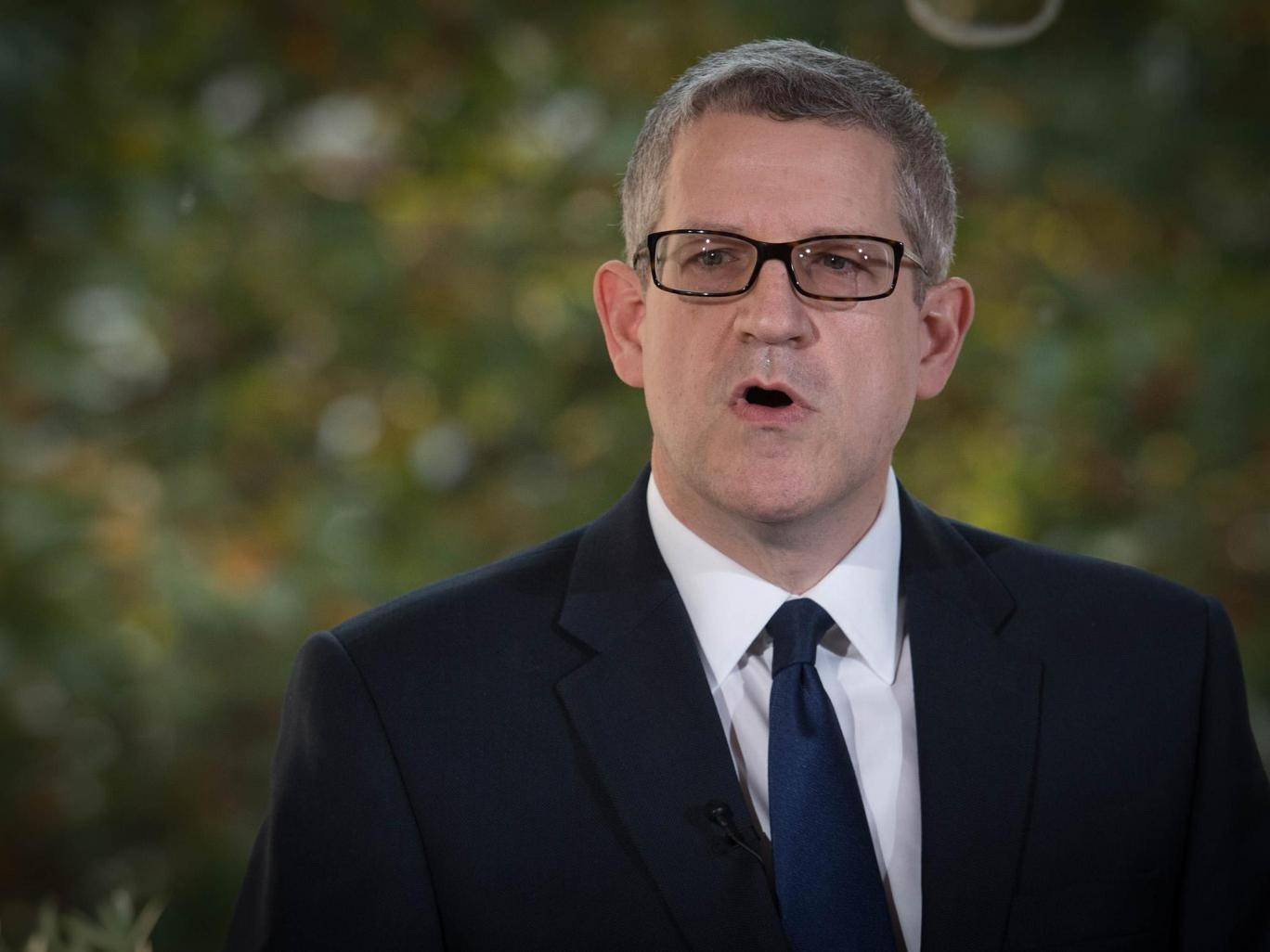Britain needs to work more closely than ever with European states in order to confront the “intense and unrelenting international terrorist threat”, as well as “unprecedented levels” of “aggressive and pernicious actions” by Vladimir Putin’s Russia, the head of MI5 has stressed on Monday.
Terrorist atrocities, with the potential to inflict widespread deaths and injuries, have been thwarted in Britain at the rate of one every month since the Westminster attack in March 2017, Andrew Parker said, while also pointing out that the threat from Isis remains as lethal and active as ever.
At the same time, the attempted assassinations of Sergei and Yulia Skripal, “with the first use of a nerve agent in Europe for the first time since the Second World War”, was a shocking and graphic example of how the country is facing unprecedented illicit violence by the Kremlin. The Salisbury attack, Mr Parker says, was a “deliberate and targeted malign activity”.
The director-general of the security service used his first public speech outside the UK, and his first since the Salisbury attack, to stress the vital need to maintain and increase liaison action with European allies to confront what he and his colleagues regard as clear and present dangers from terrorism and state-sponsored undercover warfare.
The address in Berlin comes at a time when there is deep concern about security cooperation with the European Union amid the bitter wrangling following the UK vote to leave the European Union and the prospect of a “hard” Brexit.
In the latest acrimonious chapter, Theresa May’s government has threatened to lessen security cooperation with former European Union partners if London cannot continue to use information post-Brexit from the Galileo satellite system. The European Commission has declared that one of the control centres of the system will be moved from the UK to Spain.
In a recent report, the Commons Home Affairs Select Committee warned: “The government risks sleepwalking into a crisis by appearing to assume that the shared UK-EU interest in security cooperation will lead to swift and easy agreement of complex legal and constitutional problems.”
Moscow has been accused of interference in favour of the Leave campaign in the Brexit referendum and the US presidential election that took Donald Trump to the White House, as well as elections in France, Germany, Italy and Catalonia. Condemning what he termed the “unprecedented” amount of disinformation, the MI5 chief will stress the urgent need “to shine a light through the fog of lies, half-truths and obfuscation that pours out of their propaganda machines”.
Mr Parker thanked European states for showing solidarity with Britain following the Salisbury attack by expelling Russian officials working under diplomatic credentials from their countries.
Turning to terrorism, Mr Parker said there have been 45 terrorist attacks across Europe in the last two years, highlighting the need for the UK and its continental partners to work with each other. Effective security partnership is imperative: “In today’s uncertain world we need that shared strength more than ever.”
Reflecting on his 35 years in the security field, he said: “European intelligence cooperation today is simply unrecognisable to what it looked like five years ago.” The Counter-Terrorism Group is the “largest multinational counter-terrorism enterprise in the world” where “real-time intelligence-sharing” taking place every day involves “thousands of exchanges on advanced security networks every week”.
The need for vigilance, the director-general maintained, has not lessened with Isis suffering battlefield losses in Syria and Iraq. “Daesh [Isis] still aspires to direct devastating and more complex attacks despite territorial losses.”
But, he insisted, MI5, the police and other security agencies in the UK are able confront the danger. He will say he is “confident about our ability to tackle these threats, because of the strength and resilience of our democratic systems, the resilience of our societies and the values of we share with our European partners”.

























